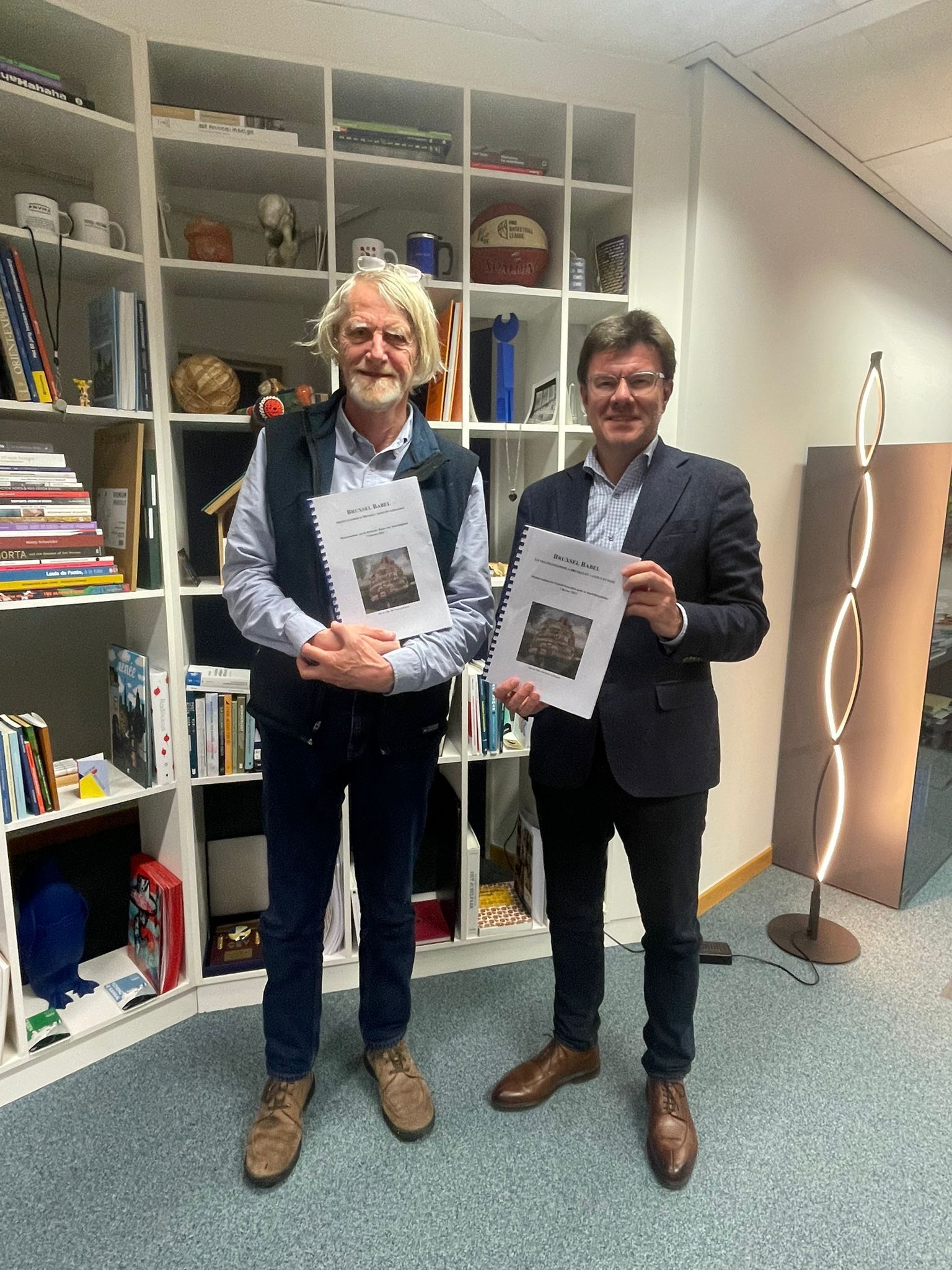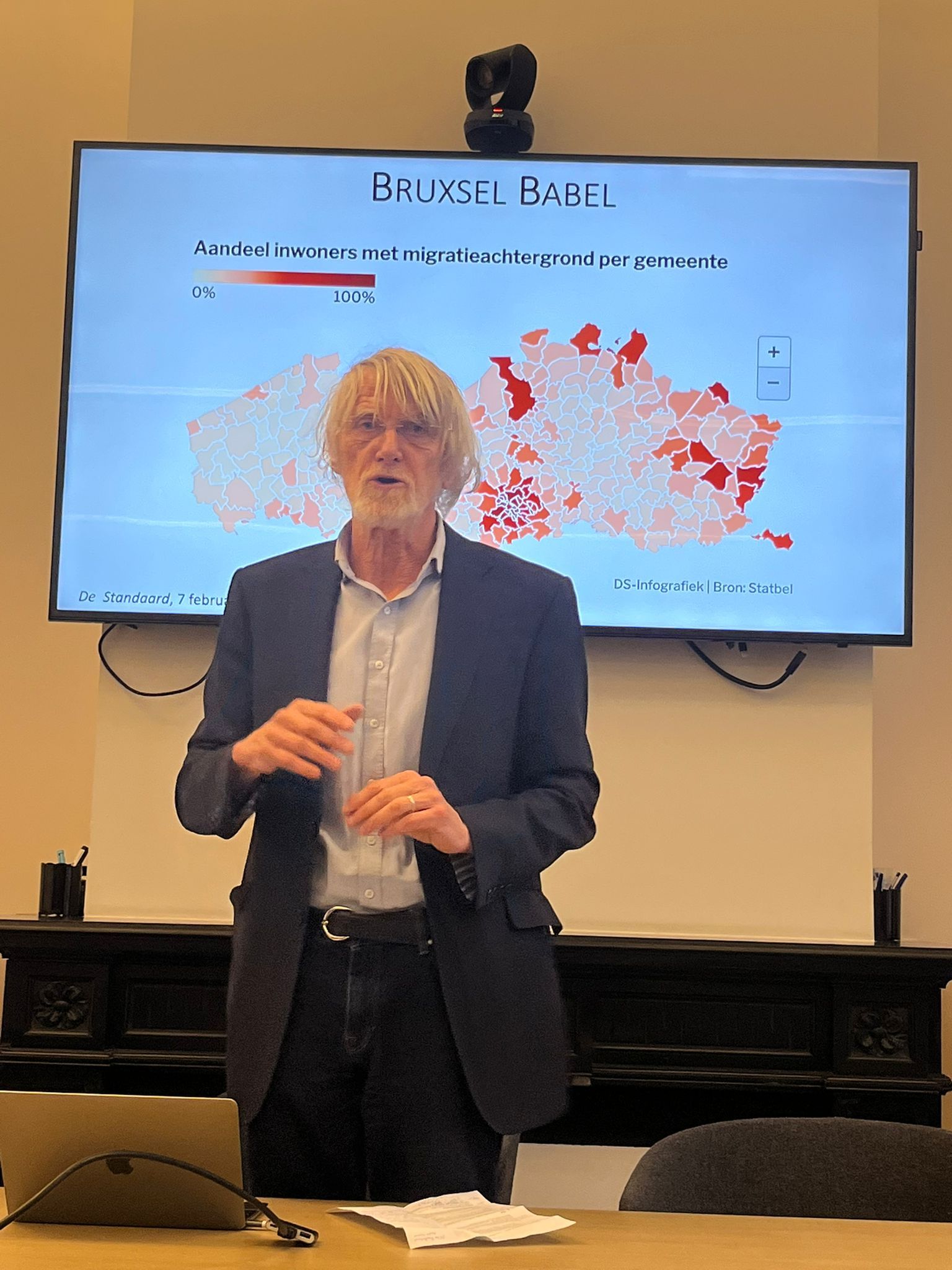Bruxsel babel. Multilingualism in Brussels: An asset and a challenge.
Created in 2020 at the initiative of the Brussels Minister for the Promotion of Multilingualism, Sven Gatz, the Brussels Council for Multilingualism has summarised what it has learned since its creation and formulated a set of recommendations in a memorandum addressed to the Brussels candidates in the elections of 9 June 2024.

Linguistically, Bruxsel has become Babel and there is no going back. Its population can no longer be thought of as a juxtaposition of two relatively stable linguistic communities: a French-speaking majority and a Dutch-speaking minority. It must rather be thought of as an extremely diverse and fluid population, which needs to be better served and better equipped. The language rules drawn up sixty years ago therefore need to be radically updated, and all our imaginations must be mobilised in order to equip the people of Brussels with the language skills that are now indispensable to them.
To guide these actions, it is essential to start by getting reliable information: about the linguistic reality of Brussels, about what explains it, and about what is already being done to adapt to it. Who is aware, for example, that more people have settled in Brussels since 2000 - most of them from abroad - than live here today? Or that in forty years the proportion of pupils in Dutch-speaking schools who do not speak Dutch at home has soared from 4% to 74%? Or that almost as many Brussels police officers receive a bonus for their knowledge of English as for their knowledge of the second official language?
Beyond often astonishing observations, the Council makes a number of recommendations: six at federal level, ten for the Brussels Region and ten for each of the Communities.
At federal level, it recommends, among other things, authorising the use of languages other than French and Dutch in all contacts with the public and in the communication of all Brussels municipal and regional public services whenever this may be useful.
For the French Community, it recommends, among other things, the use of various innovative strategies to remedy a shortage of Dutch-speaking teachers, which will be exacerbated when Dutch becomes compulsory in all primary schools in Wallonia.
For the Flemish Community, it recommends, among other things, reforming its school calendar, so as to reduce the “summer learning loss” due to summer holidays that are far longer than in the Netherlands, for example, and in order to facilitate the development of immersion teaching in our two Communities and other forms of mutually beneficial collaboration.
For the Brussels Region, it recommends, among other things, establishing an annual multilingualism week mobilising schools, businesses, public institutions and civil society, to disseminate reliable knowledge about the simultaneous learning of several languages, share good practices and raise awareness of the many ways of improving language skills in Brussels.
Quote by Sven Gatz, Brussels Minister for the promotion of Multilingualism :"The Brussels Council for Multilingualism has played an important role in implementing my policy of promoting multilingualism in the Brussels Region over the last few years. We have been able to achieve a great deal together. The Council will continue to play an important role in the development of policies that promote multilingualism. The memorandum is an excellent instrument for this purpose.”
Quote by Philippe Van Parijs, chair of the Brussels Council for Multilingualism : "This memorandum is not a list of self-serving demands. It is a tool that should enable politicians and citizens alike to become more aware of the nature and scale of Brussels’ immense linguistic challenge and to reflect together on the best way of rising to it. Only a serene discussion on a solid basis can enable us to succeed."
The 60-page memorandum (in French and Dutch) and the 36 recommendations (in French and Dutch) can be downloaded from the website www.betalky.brussels.
Bruxsel Babel (executive summary) EN.pdf
PDF 105 KB
Sheraz Rafi
Eva Vanhengel
